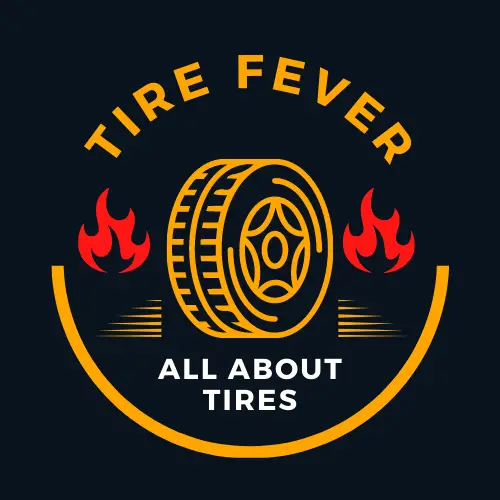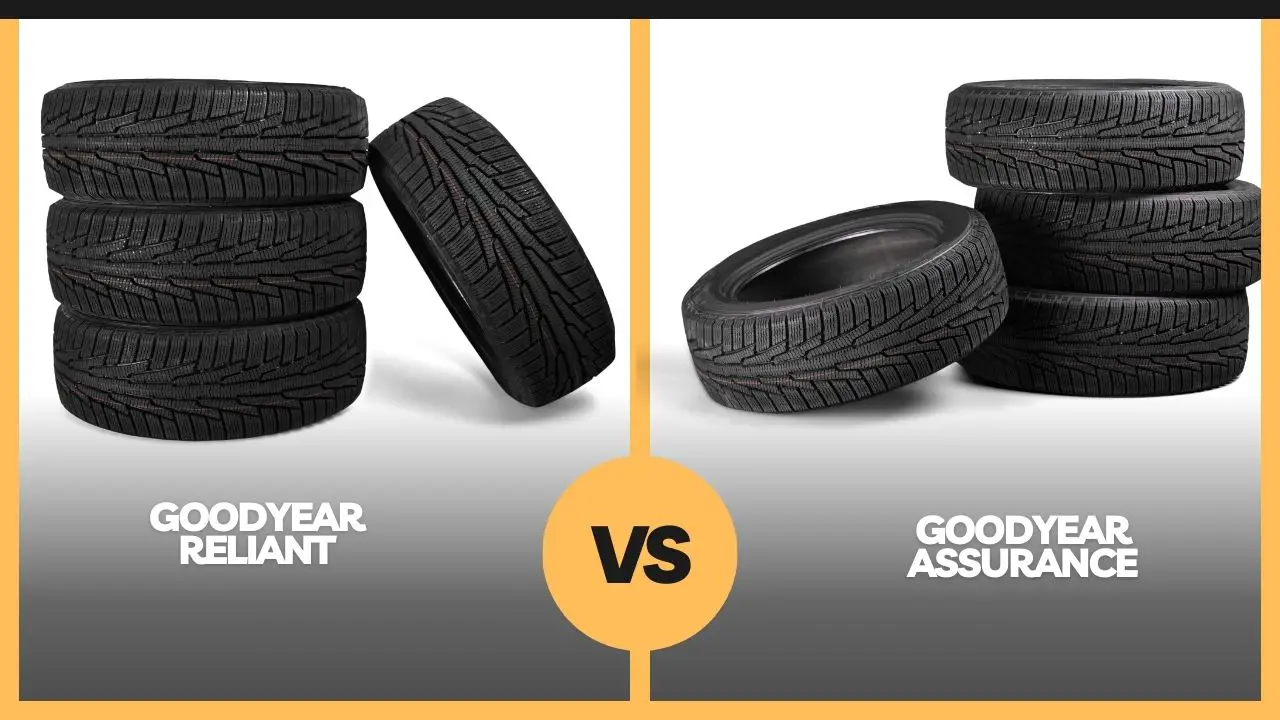Are you in the market for new tires but feeling overwhelmed by the options? Specifically, are you torn between the Goodyear Reliant and the Goodyear Assurance? Well, fear not, because we’re here to help you make an informed decision that will keep you safe on the road and give you the best value for your money.
When it comes to choosing the right tires for your vehicle, there are several factors to consider, such as performance, durability, and price. Both the Goodyear Reliant and the Goodyear Assurance have their own unique features and benefits that make them stand out in the market. So, let’s dive deeper into the comparison and see which one comes out on top.
The Historical Journey of goodyear reliant
The Goodyear Reliant was a line of compact cars produced by the Goodyear Tire and Rubber Company from 1981 to 1984. It was Goodyear’s attempt to diversify its business and enter the automotive industry. The Reliant was designed to be an affordable and fuel-efficient vehicle, targeting the growing demand for compact cars during that time.
One of the noteworthy products in the Goodyear Reliant lineup was the Reliant K. Introduced in 1981, it was a four-door sedan powered by a 2.2-liter four-cylinder engine. The Reliant K offered a comfortable ride and decent fuel economy, making it a popular choice for budget-conscious consumers. Another notable variant was the Reliant LE, which featured a more luxurious interior and additional features.
Despite its initial promise, the Goodyear Reliant faced several challenges. The company struggled to compete with established automakers, and the Reliant’s sales were disappointing. Goodyear eventually decided to exit the automotive industry and sold the rights to the Reliant to the French automaker Renault in 1984. This marked the end of the Goodyear Reliant’s production, leaving behind a brief but interesting chapter in the company’s history.
The Historical Journey of goodyear assurance
Goodyear Assurance is a tire brand that has a rich history dating back to 1898 when it was founded by Frank Seiberling in Akron, Ohio. Initially, the company focused on manufacturing bicycle and carriage tires before transitioning to automobile tires in the early 1900s. Over the years, Goodyear Assurance has become synonymous with quality and innovation in the tire industry.
One of the notable products introduced by Goodyear Assurance is the Assurance TripleTred, launched in 2004. This tire featured an innovative tread design with three different zones for enhanced traction in various weather conditions. Another noteworthy product is the Assurance Fuel Max, introduced in 2008, which aimed to improve fuel efficiency by reducing rolling resistance. These products showcased Goodyear Assurance’s commitment to developing tires that prioritize safety, performance, and environmental sustainability.
In recent years, Goodyear Assurance has continued to expand its product line, offering a range of tires for different vehicles and driving conditions. With a legacy spanning over a century, Goodyear Assurance remains a trusted and respected brand in the tire industry, known for its dedication to quality and technological advancements.
You May Also Like:goodyear reliant vs goodyear assurance outlast
In a hurry here are our top 6 tire recommendations:
- Best Budget Tires
- Best Mid-Range Tires
- Best All-Season Tires
- Best Summer Tires
- Best Winter Tires
- Best Performance Tires
goodyear reliant : Pros and Cons
When it comes to tire selection, every tire brand showcases a distinct array of advantages and disadvantages. Below are the pros and cons of goodyear reliant
Pros:
- Excellent traction on both wet and dry roads
- Durable construction for long-lasting performance
- Smooth and comfortable ride
- Good fuel efficiency
- Reasonably priced
Cons:
- Not suitable for extreme winter conditions
- May produce some road noise
- Limited availability in certain sizes
goodyear assurance : Pros and Cons
When it comes to tire selection, every tire brand showcases a distinct array of advantages and disadvantages. Below are the pros and cons of goodyear assurance
Pros:
- Excellent traction on wet and dry roads
- Long-lasting tread life
- Comfortable and smooth ride
- Good fuel efficiency
Cons:
- Not suitable for severe winter conditions
Also Read: goodyear vector 4seasons vs michelin crossclimate plus
Comparison: goodyear reliant vs goodyear assurance Key Differences
When comparing goodyear reliant and goodyear assurance, there are several key differences to consider. These differences include pricing, warranties, fuel efficiency, comfort, wet performance, dry performance, winter performance, and noise performance. Check out these other comparisons.
Let’s now dive deeper into how goodyear reliant and goodyear assurance perform in each of these key focus areas.
Pricing:
- Goodyear Reliant is generally priced lower than Goodyear Assurance.
- Reliant is a budget-friendly tire option, while Assurance is a mid-range tire.
- Reliant offers good value for money with its affordable pricing, making it suitable for cost-conscious consumers.
- Assurance, on the other hand, provides better performance and features at a slightly higher price point.
- Both tires offer reliable quality and durability, but Assurance offers more advanced technology and features for enhanced performance.
Warranties:
- Goodyear Reliant has a limited tread life warranty, offering coverage for a specified number of miles.
- Goodyear Assurance has a longer limited tread life warranty, providing coverage for a higher number of miles.
- Goodyear Reliant offers a limited warranty against defects in workmanship and materials for a specified period.
- Goodyear Assurance provides a longer limited warranty against defects in workmanship and materials for a higher specified period.
Overall, Goodyear Assurance offers longer warranty coverage for both tread life and defects compared to Goodyear Reliant.
Fuel Efficiency:
- Goodyear Reliant: Offers better fuel efficiency due to its low rolling resistance design.
- Goodyear Assurance: Provides improved fuel efficiency with its Fuel Max Technology, which reduces energy loss and enhances fuel economy.
Overall, both tires prioritize fuel efficiency, but the Goodyear Assurance with Fuel Max Technology may offer slightly better fuel efficiency compared to the Goodyear Reliant.
Comfort:
- Goodyear Reliant offers a smoother and more comfortable ride due to its advanced ComfortFlex technology.
- Goodyear Assurance provides a comfortable driving experience with its refined tread pattern and optimized tread compound.
- Reliant has a higher level of comfort due to its enhanced noise reduction capabilities, resulting in a quieter ride.
- Assurance offers a comfortable ride with its specially designed tread blocks that absorb road vibrations effectively.
- Both tires prioritize comfort, but Reliant excels in providing a smoother and quieter ride compared to Assurance.
Wet Performance:
- Goodyear Reliant has a tread pattern designed for enhanced wet traction.
- Goodyear Assurance has a specialized tread compound for improved wet grip.
- Reliant offers better hydroplaning resistance due to its circumferential grooves.
- Assurance has a higher number of biting edges for increased wet traction.
- Reliant provides improved handling and stability on wet roads.
- Assurance offers better braking performance on wet surfaces.
Dry Performance:
- Goodyear Reliant offers better dry performance with its advanced tread compound and optimized tread pattern.
- Goodyear Assurance provides good dry performance but may not be as responsive as the Reliant.
- Reliant’s tread design enhances grip and traction on dry roads, improving handling and cornering stability.
- Assurance’s tread compound and pattern are designed for a balance of performance and comfort, resulting in good dry performance.
Winter Performance:
- Goodyear Reliant has a tread pattern designed for enhanced wet traction.
- Goodyear Assurance has a specialized tread compound for improved wet grip.
- Reliant offers better hydroplaning resistance due to its circumferential grooves.
- Assurance has a higher number of biting edges for increased wet traction.
- Reliant provides improved handling and stability on wet roads.
- Assurance offers better braking performance on wet surfaces.
Noise Performance:
- Goodyear Reliant: Provides a quiet and comfortable ride with reduced road noise.
- Goodyear Assurance: Offers a noise-reducing tread pattern for a quieter driving experience.
Also Read:goodyear wrangler vs michelin ltx
Use goodyear reliant if:
Use Goodyear Reliant if you are looking for a budget-friendly tire option that offers good value for money with its affordable pricing, smooth and comfortable ride, and decent traction on both wet and dry roads. However, it may not be suitable for extreme winter conditions and may produce some road noise.
Use goodyear assurance if:
you prioritize longer warranty coverage, enhanced performance, and improved fuel efficiency. Additionally, if you value a smoother and more comfortable ride, as well as better traction on wet and dry roads, Goodyear Assurance would be a suitable choice for you.
You May Also Like: Dunlop Tires vs Cooper Tire & Rubber Company
Final Thoughts
- Both the Goodyear Reliant and Goodyear Assurance offer excellent traction on wet and dry roads, durable construction for long-lasting performance, a smooth and comfortable ride, and good fuel efficiency.
- However, they are not suitable for extreme winter conditions and may produce some road noise. The Goodyear Assurance also has limited availability in certain sizes.
- Overall, both tires are reliable options, but if winter performance is a priority, it may be worth considering other options.
This post contains affiliate links. Read the full disclosure here.


I am passionate about all things automotive and have a deep understanding of the topic. As a mechanic, I use my free time to share knowledge of everyday challenges that any car owner can experience – helping you make informed decisions about tires.

